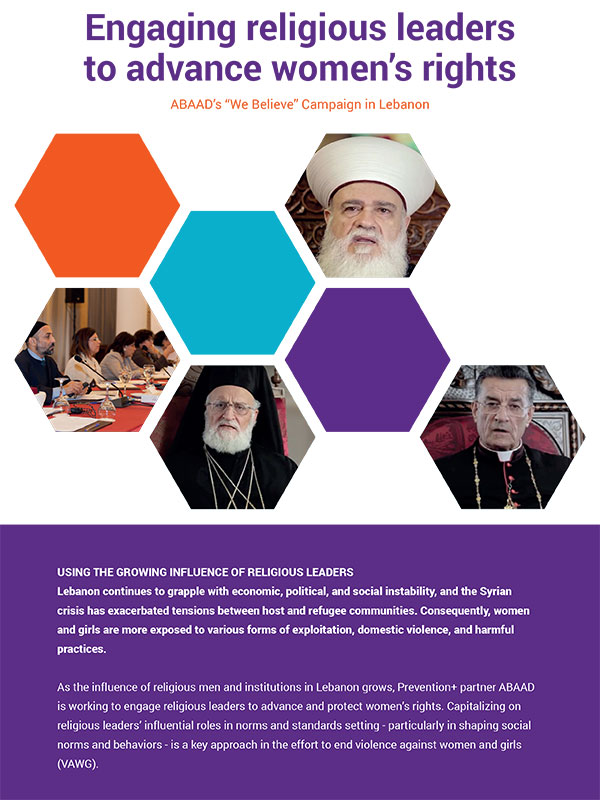- 021 423 7088
- info@genderjustice.org.za
- Whistleblower: 0800 333 059
Around the world, we see an increase in conservatism, leading societies away from human rights, towards more dogmatic beliefs. Women are disproportionately affected by this shift, with limitations to their rights, the reinforcement of the male hierarchy and the marginalisation of sexual and gender diversity. At the same time, the influence of religious leaders in their communities, means they can play key roles in tackling gender-based violence (GBV). Discover how our Prevention+ programme successfully works with these leaders in Indonesia, Lebanon and Uganda.
As the country with the biggest Muslim population in the world, Muslim clerics play an important role in all aspects of life in Indonesia. They influence the masses through teachings and act as role models. The religious leaders and marriage counsellors of the Office of Religious Affairs, are influential in the field of family guidance, and marriage and couple reconciliation. This makes them key players in the fight against GBV. Prevention+ and partner organisations, Rahima and Rifka Annisa, strengthen and build upon their important role in communities by giving trainings to clerics on incorporating gender equal perspectives into their marriage counselling to couples.
Lebanon continues to grapple with economic, political, and social instability, and the Syrian crisis has exacerbated tensions between host and refugee communities. Consequently, women and girls are more exposed to various forms of exploitation, domestic violence, and harmful practices. As the influence of religious men and institutions in Lebanon grows, Prevention+ partner ABAAD is working to engage religious leaders to advance and protect women’s rights. Capitalizing on religious leaders’ influential roles in norms and standards setting – particularly in shaping social norms and behaviours – is a key approach in the effort to end violence against women and girls.
Female genital mutilation (FGM) is one of the cultural practices that promotes gender-based violence (GBV) in Eastern Uganda. A belief in FGM is a strong part of cultural identity in this region with cultural ceremonies requiring the attendance of circumcised men and women as guests of honour. As a result, the circumcision of women is widely supported in the community. Faith leaders are key players in influencing cultural beliefs and values and the Prevention+ programme targets them as key allies and champions of GBV prevention. This has led to the almost full eradication of FGM in the area.


Sonke is a South African-based non-profit organisation working throughout Africa. We believe women and men, girls and boys can work together to resist patriarchy, advocate for gender justice and achieve gender transformation.
Please note that Sonke does not offer counselling or other support services to individuals. Click here for information on where to get help.
Sign up for the Sonke e-Newsletter to receive social justice news and views in your inbox.
Please see our Privacy Policy here.